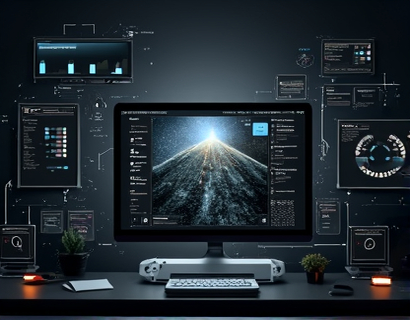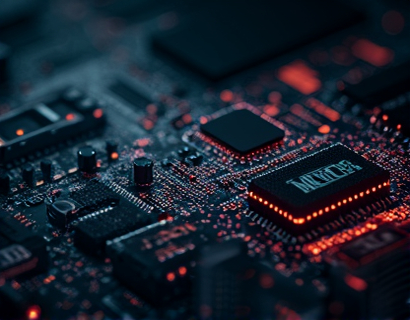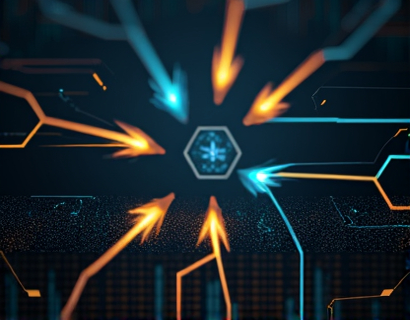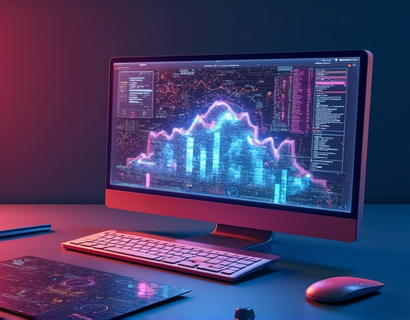Decentralized Business Transactions: Streamlining Interactions with Advanced dApp Solutions
In the rapidly evolving landscape of digital commerce, the shift towards decentralized solutions is reshaping how businesses interact and conduct transactions. This transformation is driven by the need for greater security, transparency, and efficiency in the digital marketplace. At the forefront of this revolution are decentralized applications, or dApps, which leverage blockchain technology to create peer-to-peer platforms for various business activities. These advanced dApp solutions are not just a novelty; they represent a significant leap forward in how we approach and execute business logic in the digital realm.
The concept of decentralized commerce is rooted in the principles of blockchain technology, which ensures that transactions are immutable, transparent, and secure. Unlike traditional centralized systems where a single entity controls the data and processes, decentralized systems distribute trust across a network of nodes. This distribution eliminates the risk of a single point of failure and reduces the potential for fraud or manipulation. For tech-savvy entrepreneurs and businesses seeking decentralized solutions, the benefits are clear: enhanced security, reduced costs, and increased autonomy.
Understanding Decentralized Applications
Decentralized applications, or dApps, are software applications that run on a blockchain or a decentralized network rather than on a central server. These applications are governed by smart contracts, which are self-executing contracts with the terms directly written into code. Smart contracts automatically enforce and execute the terms of an agreement when predefined conditions are met, eliminating the need for intermediaries.
The architecture of a dApp typically includes a frontend user interface, a backend smart contract, and a decentralized storage system. The frontend interacts with the user, while the backend smart contract manages the business logic and ensures that transactions are executed as intended. Decentralized storage solutions, such as IPFS (InterPlanetary File System), store data across the network, ensuring that it is accessible and resilient to censorship.
Key Features of Decentralized Business Transactions
Decentralized business transactions offer several key advantages that traditional centralized systems cannot match. First and foremost, security is paramount. Blockchain's cryptographic algorithms and decentralized consensus mechanisms make it extremely difficult for malicious actors to alter transaction data. This level of security is crucial for businesses handling sensitive information and financial transactions.
Transparency is another cornerstone of decentralized transactions. Every transaction on the blockchain is recorded on a public ledger, which means that all participants can verify the authenticity and integrity of the data. This transparency builds trust among users and reduces the need for intermediaries to vouch for the validity of transactions.
Efficiency is also a significant benefit. Decentralized systems automate many processes through smart contracts, reducing the time and effort required to complete transactions. This automation not only speeds up the transaction process but also minimizes human error, leading to more reliable and consistent outcomes.
Empowering Users with Decentralized Solutions
The adoption of decentralized solutions empowers both individuals and businesses to take control of their digital interactions. For businesses, this means reduced reliance on third-party service providers and lower transaction costs. Companies can directly connect with their customers and partners, streamlining the supply chain and enhancing operational efficiency.
For individuals, decentralized platforms provide greater financial inclusion and access to global markets. Users can participate in economic activities without the need for traditional banking infrastructure, opening up new opportunities for those in underserved regions. The democratization of commerce through decentralized technologies is a powerful force driving economic growth and innovation.
Case Studies: Real-World Applications
Several real-world examples illustrate the practical applications and benefits of decentralized business transactions. One notable example is decentralized finance, or DeFi, which has disrupted traditional financial services by offering lending, borrowing, and trading capabilities on blockchain platforms. These DeFi protocols operate without intermediaries, providing users with greater control over their assets and financial decisions.
Another example is decentralized marketplaces, where buyers and sellers can transact directly without the need for a central authority. These platforms use smart contracts to ensure that agreements are fulfilled as per the terms set by the parties involved. This approach not only enhances trust but also reduces the risk of fraud and disputes.
Challenges and Considerations
While the potential of decentralized business transactions is vast, there are several challenges and considerations that must be addressed. One of the primary concerns is scalability. Current blockchain technologies often struggle to handle a high volume of transactions, leading to slower processing times and higher fees. However, ongoing developments in blockchain scalability solutions, such as layer 2 protocols and sharding, are addressing these issues.
Regulatory uncertainty is another factor that businesses must navigate. As decentralized technologies are relatively new, regulatory frameworks are still evolving. Companies need to stay informed about the legal landscape and ensure compliance with relevant regulations to avoid potential risks.
User education is also crucial. For decentralized solutions to be widely adopted, users must understand the benefits and mechanics of these platforms. Providing clear and accessible educational resources can help bridge the knowledge gap and foster greater adoption.
The Future of Decentralized Commerce
The future of decentralized commerce is bright, with ongoing innovations poised to further enhance the user experience and expand the scope of decentralized applications. The integration of advanced technologies such as artificial intelligence and the Internet of Things (IoT) with blockchain is opening new possibilities for smart contracts and decentralized systems.
As more businesses and individuals recognize the advantages of decentralized transactions, the ecosystem is expected to grow and mature. Increased adoption will lead to more robust and user-friendly platforms, driving further innovation and adoption. The shift towards decentralized commerce is not just a trend; it is a fundamental transformation of the digital economy, empowering users and reshaping the way we conduct business in the digital age.










































